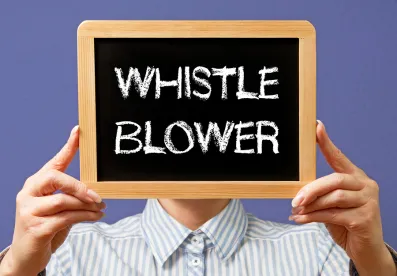Li Wenliang, the courageous coronavirus whistleblower and doctor who tried to warn of a dangerous new virus in China, has passed away.
After seeing the similarities between the first cases of what would become known as the coronavirus and SARs in late December, Dr. Li warned fellow doctors to wear protective gear to avoid infection. Four days later, he was reprimanded by police and forced to sign a statement saying that his warning was “illegal behavior” and “making false comments.” Days later, he became hospitalized with the virus. Despite this overt threat of retaliatory action by the government, Dr. Li went public with his experiences and gave interviews to help the public better understand the unfolding epidemic.
Yesterday, Dr. Li succumbed to the virus and was pronounced dead. His death has sparked national and international outrage and laid bare both the ineffectiveness and consequences of human rights repression and the urgent need for world-wide whistleblower protections.
Dr. Li’s case demonstrates why freedom of speech is one of the most fundamental human rights. Without freedom of speech, whistleblowers remain silent with grave consequences: this silencing of a whistleblower allowed the virus to spread more rapidly than it might have if initially treated like SARs as requested by Dr. Li.
Moreover, the silencing of Dr. Li and countless other whistleblowers like him has allowed for the spread of false information. Rather than embracing credible whistleblowers, the government has tried to control the dissemination of all non-governmental information. This lock-down has resulted in people believing any information that seeps through governmental barriers regardless of its reliability. Rather than refuting false information that might cause public panic and disseminating reliable facts from credible sources such as doctors, authorities in China appeared more focused on silencing criticism, demonstrating how censorship is ineffective in protecting the public.
Lastly, despite government repression, as coronavirus whistleblower Dr. Li’s case has made clear, freedom of speech can never be entirely muzzled for long. Dr. Li’s death triggered a renewed outpouring of public criticism of the government over whether there had been a cover-up of the outbreak and negligence among government officials in Hubei province. According to the New York Times, the hashtag #wewantfreedomofspeech began on the social media site Weibo at 2 a.m. on Friday. It had over two million views, and over 5,500 posts contained the hashtag by 7 a.m. when censors deleted it.
As stated by Amnesty International regional director Nicholas Bequelin: “The case of Li Wenliang is a tragic reminder of how the Chinese authorities’ preoccupation with maintaining ‘stability’ drives it to suppress vital information about matters of public interest.” To prevent further harm to the public, China must recognize the flaws in its free speech laws and initiate legal reform that supports whistleblowers regardless of the sector in which they blow the whistle.
No one should fear for their safety or face sanctions for trying to protect the public from grave consequences and imminent danger. As posted by the Weibo account of Shandong Province’s law enforcement body: “Heroes don’t fall from the sky. They’re just ordinary people who stepped forward.”



 />i
/>i
